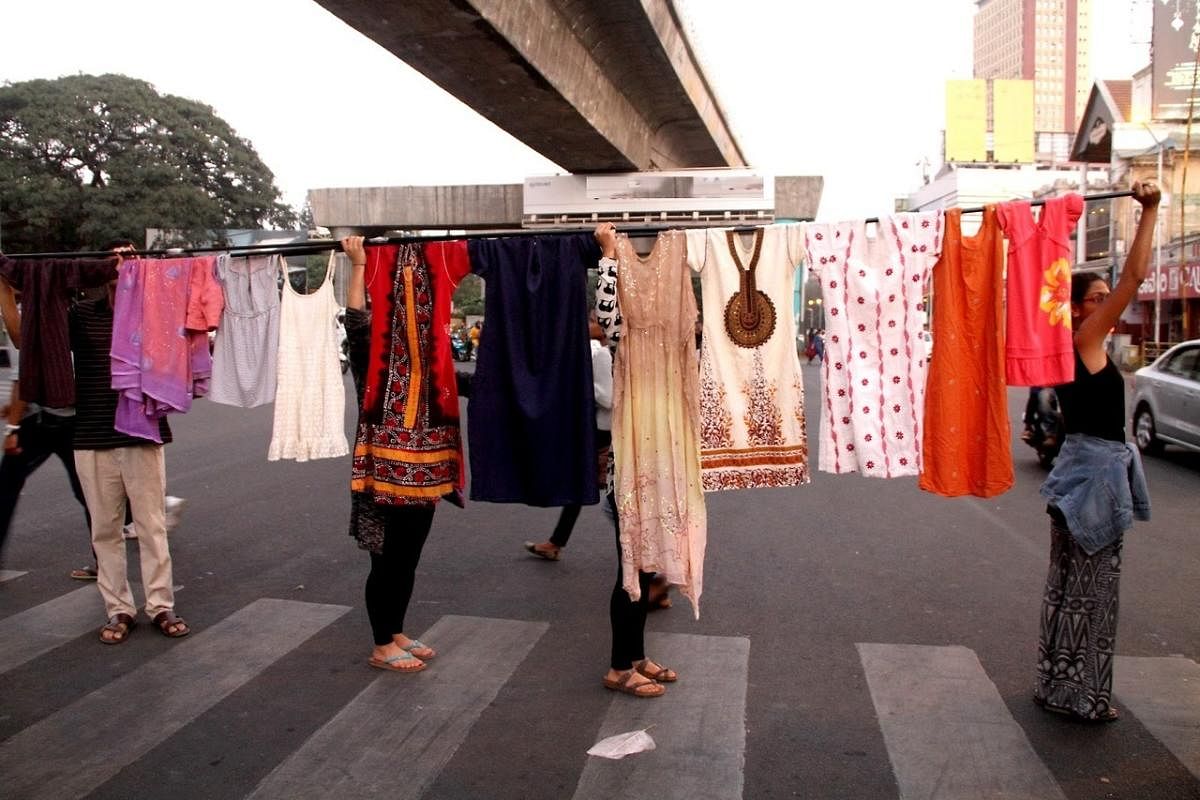
Helmed by Bengaluru-based NGO Blank Noise, the #INeverAskForIt campaign is trending on social media, following a tweet-a-thon organised by them, earlier this week. During the event, several people pledged to tackle victim-blaming.
Political leaders Priyanka Chaturvedi and Atishi, singers Sona Mohapatra and Ankur Tewari, and Barkha Dutt were among the hundreds of people who joined the campaign.
Many shared their stories of sexual abuse along with photos of the clothes they were wearing at the time of the incident. “The pledge is a visible action. It sets the ground to pursue a conversation and unite under it. To see people in public light and leadership do so would set the ground,” says Jasmeen Patheja, founder.
The inception
For the first decade, since its inception in 2003, the organisation focused on the problem of street harassment. “It was a problem that was normalised. We wanted to tell people that just because it happens regularly, it is not something that should be accepted,” she says.
Challenging the norm by calling themselves ‘Action Sheroes’ and doing events in public spaces was a way they worked towards the change.
The other method was building testimonials. “These two methods often worked in tandem. If the testimonials collected showed that women are afraid to walk alone, for example, we would do action that showed us walking alone or standing idle in public spaces,” she says.
Over the years their effort has evolved to working to eradicate gender-based and sexual violence. “In 2004, we used to ask people if they have ever experienced harassment, and the reactions were largely of denial or anger. The ones who got angry at the question, I realised later, had internalised the demarcation that good girls don’t experience harassment. That culture needs to change,” says Jasmeen.
Out of the few who were willing to share, she says, most women spoke about the clothes they were wearing. “It is here that the ‘I never asked for it’ campaign found seed. They always recalled what they wore. School uniforms to salwar kameez and burqa, the modesty of the clothing didn’t change their experience,” she says.
The primary aim of the campaign is to create an exhibition of the clothes women were wearing when they experienced any form of sexual violence. She plans to display 10,000 such items of clothing at India Gate by the year 2023. At the moment they have 300.
“We want it to be a project built by everyone. It calls for collective message across industry, organisations and communities,” she says. The garment is representative of their experience. “It is not a display. It’s about offering a sense of catharsis and solidarity,” she says.
Responding to commentators who asked why men were excluded from the conversation, she says that INeverAskForIt is responding to a culture of patriarchy that is located across genders.
“It is speaking to everyone, but it is focused on collecting stories of survivors that are women, non-binary and trans members,” she says. The female body has a different history by virtue of belonging to a world of female foeticide, honour killing and other gender-based crimes, she adds.
However, men who may choose to share their stories will not be turned away. “The role of men is feeling and expressing by reflecting on how they may have enabled such behaviour or how they can change this. This is an effort that has to go beyond ‘Save your Daughter’. Our bodies deserve to be free,” she adds.
People can mail their audio testimonial and consent to publish to actionhero@blanknoise.org or WhatsApp 98868 40612. You can also send the package to the address listed on www.blanknoise.org/ineveraskforit